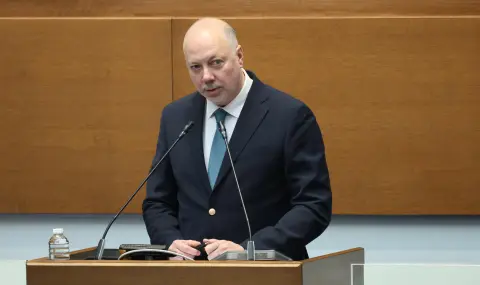Prime Minister Rosen Zhelyazkov called from the parliamentary rostrum for calm regarding the numbers in Budget 2025 until the document is submitted for consideration by the deputies, BNT reported.
He and the deputy prime ministers were answering questions as part of the regular Friday blitz control. Food prices and state intervention were also a topic of discussion.
The Prime Minister is of the opinion that the figures presented during yesterday's parliamentary day and the political debate on them have not led to a clarification of everything that has threatened public finances in recent years.
Rosen Zhelyazkov - Prime Minister: "All the problems were expressed, but in the end it did not become clear to the public, neither what the real picture is, nor what the problems are that need to be addressed with this and the next budgets".
Zhelyazkov emphasized that the announced data and facts about unpaid obligations, about political commitments made but not secured for certain expenses, about invoiced obligations transferred to the next year will be clearly disclosed.
"But they will serve very precisely and correctly in the draft state budget for the current year to prevent such types of violations of the fiscal discipline"
That is why the Prime Minister asked that the debate on the topic take place after the budget is submitted, on the grounds that each number has not only a financial but also a political interpretation.
For the newly elected government, it is important what budget it will propose, what budget it will defend and, if it manages to gather the support of parliament, how it will guarantee its implementation.
"Our country has the potential, not to limit spending, but to increase revenues in the direction of brightening up the gray economy, new sources that full membership in the Schengen area will give us, as well as better work of regulators and control bodies", the Prime Minister also stated.
"So my task is to convince you to look ahead and not make the mistakes we leave behind".
Rosen Zhelyazkov also commented on the possibilities for controlling the growth of prices of essential goods in answer to a question from "DPS-New Beginning".
"Direct intervention by the state in the market of basic consumer goods, especially at retail, is an unacceptable intervention within the market, but this does not exclude the control mechanisms that the state has at its disposal in the person of its regulatory authorities".
This should be a regulation related to unacceptable cartel agreements.
The Prime Minister expressed hope that this year the role of regulators in the market would be felt, but stressed that it is very important not to send messages that would sound "like stupidity on the part of the government to intervene in the retail price market".
